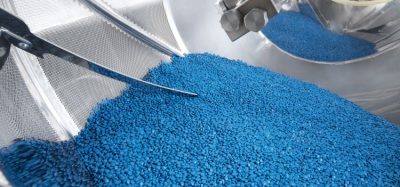Temperature-stable tuberculosis vaccine induces immune response
Posted: 6 March 2023 | Catherine Eckford (European Pharmaceutical Review) | No comments yet
A National Institutes of Health (NIH)-supported trial has demonstrated the safety and efficiency of a freeze-dried thermostable tuberculosis vaccine.


Credit: NIAID
The first clinical trial of any subunit tuberculosis (TB) vaccine in a temperature-stable form has found that ID93+GLA-SE, a freeze-dried vaccine, was safe.
Investigators assessed whether administering a temperature-stable vaccine containing both ID93 and GLA-SE in a single vial would be as effective at inducing an immune response as a regimen in which non-thermostable ID93 and liquid GLA-SE are held in two vials and combined prior to injection.
The recombinant subunit vaccine is made from four proteins of Mycobacterium tuberculosis bacteria combined with GLA-SE, an immune-stimulating adjuvant. In the Phase I trial, the vaccine stimulated both antibodies and responses from the cellular arm of the immune system.
A non-temperature stable form of the vaccine candidate previously had been tested in several clinical trials, the study authors noted.
The Phase I trial for the temperature-stable tuberculosis vaccine
Twenty-three participants received the thermostable single-vial regimen, while 22 participants received the two-vial, non-thermostable regimen. Both vaccine presentations were safe and well-tolerated. Recipients of the single-vialled thermostable vaccine had robust T-cell responses and produced higher levels of antibodies in the blood than those receiving the non-thermostable two-vial presentation.
The freeze-dried formulation does not require refrigeration and is mixed with sterile water just prior to injection. Thermostable vaccines are desirable in settings where maintaining cold or frozen vaccines for long periods can be costly and difficult. Investigators in the trial noted that a single-vial presentation of a vaccine would offer ease of storage, transport and administration.
Conclusions of the study
As the trial was small, the investigators stated that no established correlates of protection define what immune responses are required for vaccine-induced protection from TB . Therefore, it is not possible to say whether the enhanced immune responses seen in the thermostable vaccine formulation would translate to improved protective vaccine efficacy. However, Sagawa et al. concluded that findings demonstrated “a proof-of-concept that adjuvant-containing vaccines can be formulated in a freeze-dried single-vial presentation without detrimentally impacting clinical immunogenicity or safety characteristics.”
The study results were published in Nature Communications.
The trial was supported by the National Institute of Allergy and Infectious Diseases (NIAID), part of the National Institutes of Health (NIH).
Related topics
Biopharmaceuticals, Drug Development, Freeze Drying, Immunisation, Research & Development (R&D), t-cells, Therapeutics, Vaccines









